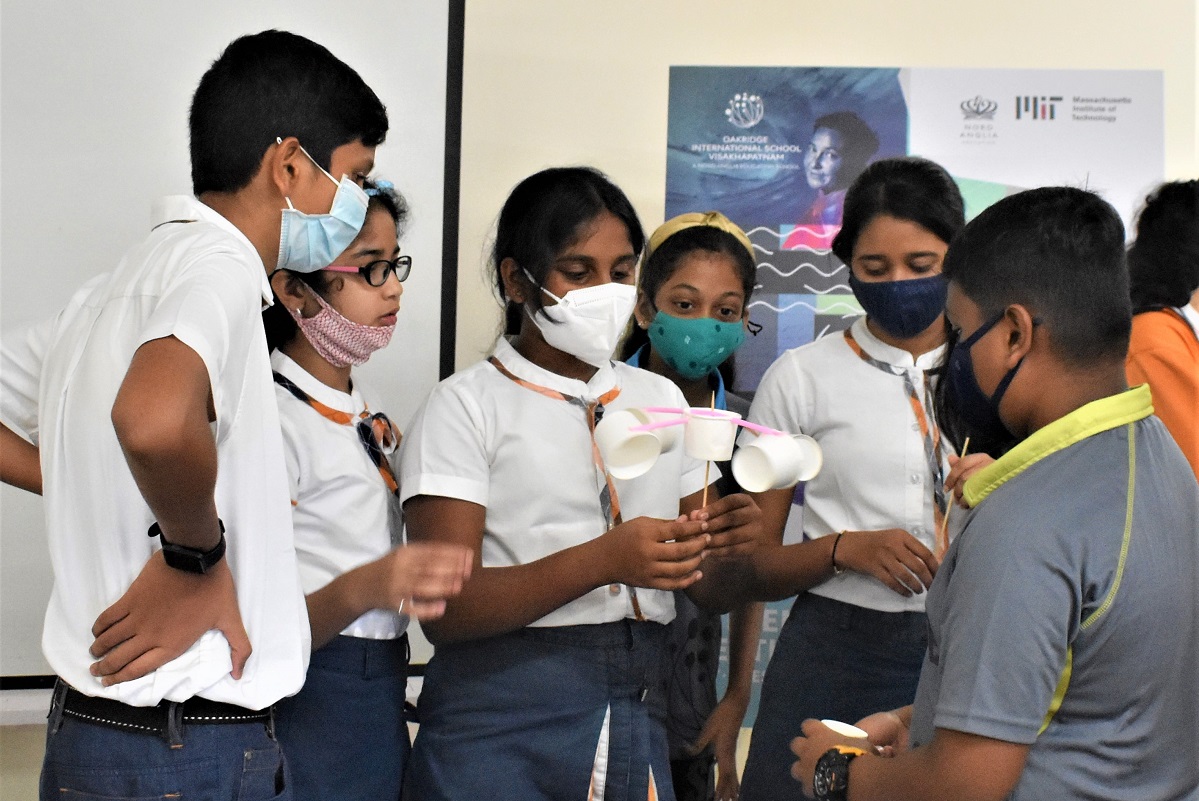IB Diploma Programme – Grade 11 and 12
- 15 February 2022

The International Baccalaureate Diploma Programme (IBDP) supports Nord Anglia Education’s belief in curriculum as the entire planned learning experience. Students are challenged by a broad curriculum, and must also fulfil three core requirements – complete an extended essay, attend a theory of knowledge course, and participate in creativity, activities and service experiences.
Here at Oakridge International School, we offer students a wide selection of course subjects. This allows them to find a suitable programme that lets them progress to the next stage of their education or career. Every student studying the IBDP will study one subject from each of six groups, as well as completing the Creativity, Activity, Service (CAS) programme, Theory of Knowledge (TOK), and Extended Essay.
Fundamental to the IB philosophy and ideology is the IB Learner Profile. The IB Learner Profile describes what attributes the IBO believes individuals and groups should model and showcase in order to be responsible and valued members of local and global societies.
These attributes form the foundations that underpin the IB Diploma Programme and we hope they will inspire our students to think about what they are going to achieve success over the next two years and life beyond formal Secondary school education.
Approaches to Learning are deliberate strategies, skills and attitudes that permeate the IB teaching and learning environment. They supports the IB belief that a large influence on a student’s education is not only what you learn but also how you learn. The ATLs focus on teaching students how to learn and this has always been a part of IB teaching, but now the IB is providing more explicit support for teaching these skills.
The focus on ATL will improve the quality of teaching and learning across the programmes and may result in more engaged teachers and students.
The IB Approaches to Learning skills are as follows:
To ensure the Approaches to Learning are embedded into the learning culture they are supported by the Approaches to Teaching (ATT) that include pedagogical strategies that are:
Those students who are aspiring to apply to a university undergraduate degree programme will be registered for the Full IB Diploma whereby they:
Those students who do not wish to study the Full IB Diploma, or for whom the Full Diploma is deemed inaccessible, can opt to be registered as an IB Diploma Course student. This means that they will not be entered for the full complement of six optional subjects plus the Core elements of TOK, EE and CAS, but rather any combination of optional subjects and Core elements of their choice.
There is no set combination of subjects that must be chosen; rather the student decides what elements of the Full IB Diploma they wish to be examined in that best suits their academic needs and career aspirations.
The IB awards a grade for each of the IB Diploma subjects taken with the maximum score for each subject being 7 points and a minimum being 1 point. This is the same whether the subject is taken at Standard Level or Higher Level. This gives a total subject score out of 42 if a student is taking the six subjects on the Full IB Diploma Programme.
The grading is based on both the coursework carried out and the results of examinations at the end of the two-year linear programme. The maximum score for the IB Diploma is 45 points combining six subject grades (maximum of 6 x 7 points for a score of 42) with up to 3 points available for the successful completion of both the Extended Essay and the Theory of Knowledge components.
The assessment of the final grades for the work completed throughout the two-year programme is determined by external examiners and moderators appointed by the IB.
Universities in over 90 countries recognise the IB Diploma and it enables students to gain entrance to the most competitive universities around the world where admissions staff recognise the academic rigour of the IB. In the United Kingdom, it is a highly regarded alternative to A levels while in the United States, recognition of the IB Diploma is growing rapidly and many institutions will award first year credit for success on IB courses.
Universities look favourably upon IB Diploma students as the curriculum model develops a balanced variety of skills. These include ‘cognitive skills’ such as analysing and synthesising data and being able to partake in critical thinking with intellectual thought and insight.
Students also develop ‘affective skills’ such as persistence and perseverance, developing resilience and working independently or as part of a team.
IB Diploma students will be intellectually courageous within the range of subjects that they study and will be equipped for a greater choice of undergraduate degree programmes.
The skill-set that Diploma Programme students develop, especially through experiencing the IB ‘Core’ are highly valued by universities.